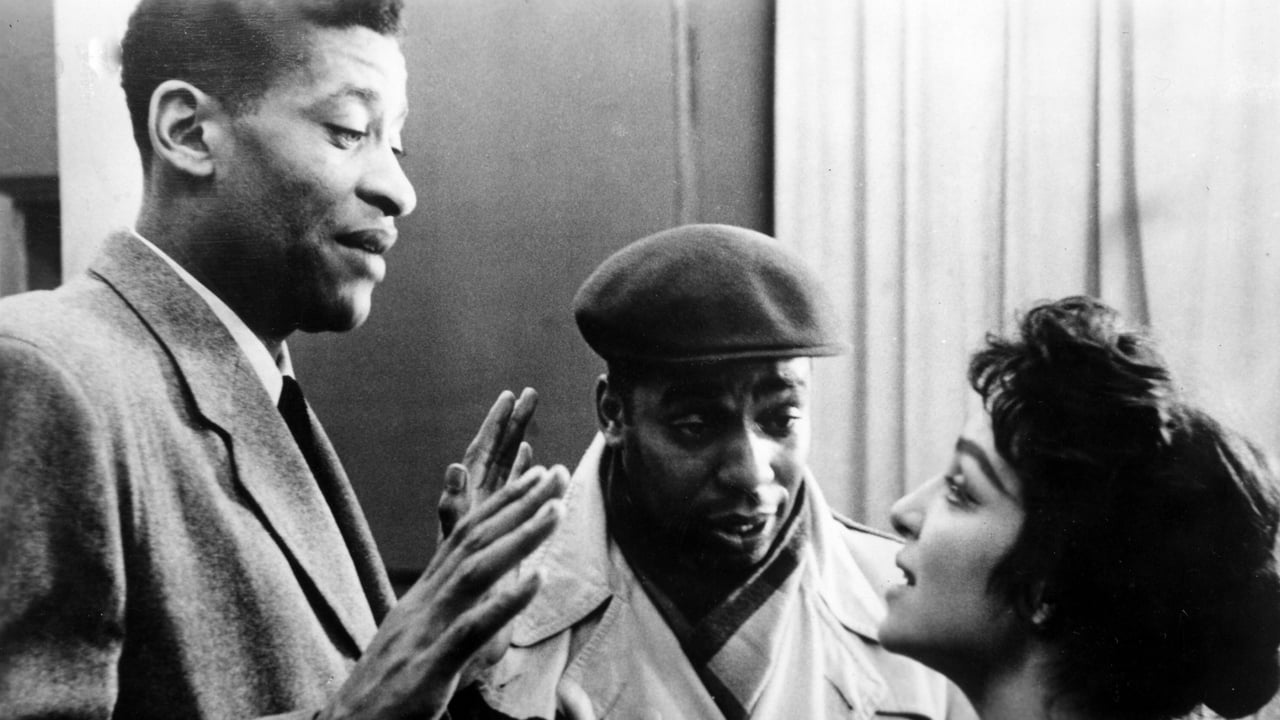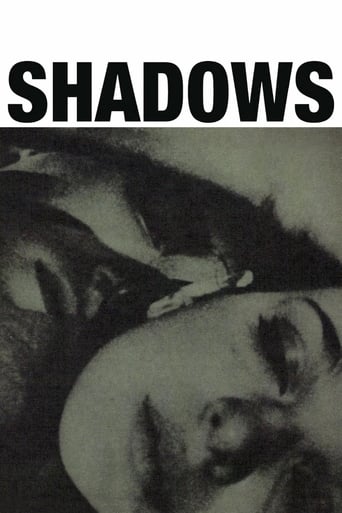

The Worst Film Ever
... View Morenot as good as all the hype
... View MoreSimple and well acted, it has tension enough to knot the stomach.
... View MoreClever and entertaining enough to recommend even to members of the 1%
... View MoreJohn Cassavetes' first film is a wonder, a beautiful work of improvisation that ranks among the best of the 50's. No film to this day has done improvisation with such mastery and few films to this day have so many beautiful shots of New York. It is just as good as The New Wave films in France with characters that make sense. It's honest about its time period and really shows New York for what it is. This may be Cassavetes' best film or at least his most technically dazzling. The actors all seem at ease and natural which is the beauty of improv. and the beauty of Cassavetes' unique form of art. A low-key but worthwhile film.
... View MoreTo be honest, I really didn't expected to like this movie, mostly since its entire premise and set-up sounded pretentious but as it often turns out with me; I'm actually quite fond of this 'different' and more art-house type of movie.The movie is an entirely improvised one, so that means that the acting is also being that way. It works refreshing, especially with all of its dialog but it makes it also obvious that not all of the actors in this movie are being very great ones.Still, the style of improvising for this movie is one that works out and makes this movie throughout a good one to watch. Not always an interesting one but a good one nevertheless. As often is the case with these improvised type of movie, it tends to drag on with certain sequences, though it can be argued that this is also actually being something that adds to the realism and rawness of the overall movie.But I really wont pretend as if this is the best example of what the genre is capable off. The movie still does plenty wrong. To be frank, some of the directing can get really sloppy in this movie and it often features sudden cuts and obviously later put in in-between shots. Another thing that the movie does a somewhat bad job with are its characters. It really isn't clear from the beginning on which character or characters are supposed to be the main ones. This won't became apparent until very late into the movie. You could definitely blame the improvisation style of the movie for this.But all in all, I still liked watching this different, little and honest movie, by John Cassavetes. It's well shot with some nice camera-work and it shows the atmosphere and environments of the late '50's New York. It's story also involves some good themes such as racism and interracial relationships, which was something that just didn't get featured very often in movies around that time.7/10http://bobafett1138.blogspot.com/
... View MoreIt should be noted that this movie was not "improvised" (as you're probably thinking of it), despite what the title at the end suggests. The movie was heavily scripted and rehearsed - Cassavetes didn't have enough money to support the inevitably high production costs of an "improvisational" sort of movie, even if he had wanted to produce such a thing. The "improvisation" of the movie is contained in the actors' performances, and the emotions that they draw out of the lines.That said, allow me to say that this is a stunning work that I'm sure I'll come back to again and again. The depths of emotion that Cassavetes is able to draw out of the smallest gestures and interactions is incredible. I have no idea how he was able to direct such amazing performances out of the actors, especially under the conditions he worked. This is truly a magnificent landmark of film that I would recommend to anyone interested in exploring beyond the Hollywood mold.
... View MoreShot on a minimal budget of $40,000 with a skeleton six person crew, SHADOWS offers an observation of the tensions and lives of three siblings in an African-American family in which two of the three siblings, Ben (Ben Carruthers) and Lelia (Lelia Goldoni), are light-skinned and able to pass for white. Cassavetes demanded that the actors retain their real names to reflect the actual conflicts within the group but saw the film as being concerned with human problems as opposed imply to racial ones. Cassavetes shot the film in ten minute takes and jagged editing, a reaction against 'seamless' Hollywood production values. Cassavetes main inspiration - at least in the cinematic style the film was shot - were the Italian neo-realists whilst also professing admiration for Welles' pioneering spirit. The use of amateurs and improvisation might resemble some of the Italian neo-realist directors, but with his bebop score by Charles Mingus ans Shafi Hadi, the film feels very different, very American, unlike anything made before really. The song with the feathered girls, "I feel like a lolly-pop" (or something) feels like light years back to me, ancient history. But no matter how dated it might look, it still makes a delightful time capsule of late Fifties New York today. I think it's this is one of the first films made aspiring filmmakers realize they could shoot an independent film, without Hollywood, improvised and without a real budget. Seymour Cassel, who acted and was involved in SHADOWS, claims it was Jules Dassin's THE NAKED CITY (1948) that was the first and inspired them all, but I think this was the one that really opened the eyes of aspiring independent American filmmakers.Camera Obscura --- 8/10
... View More